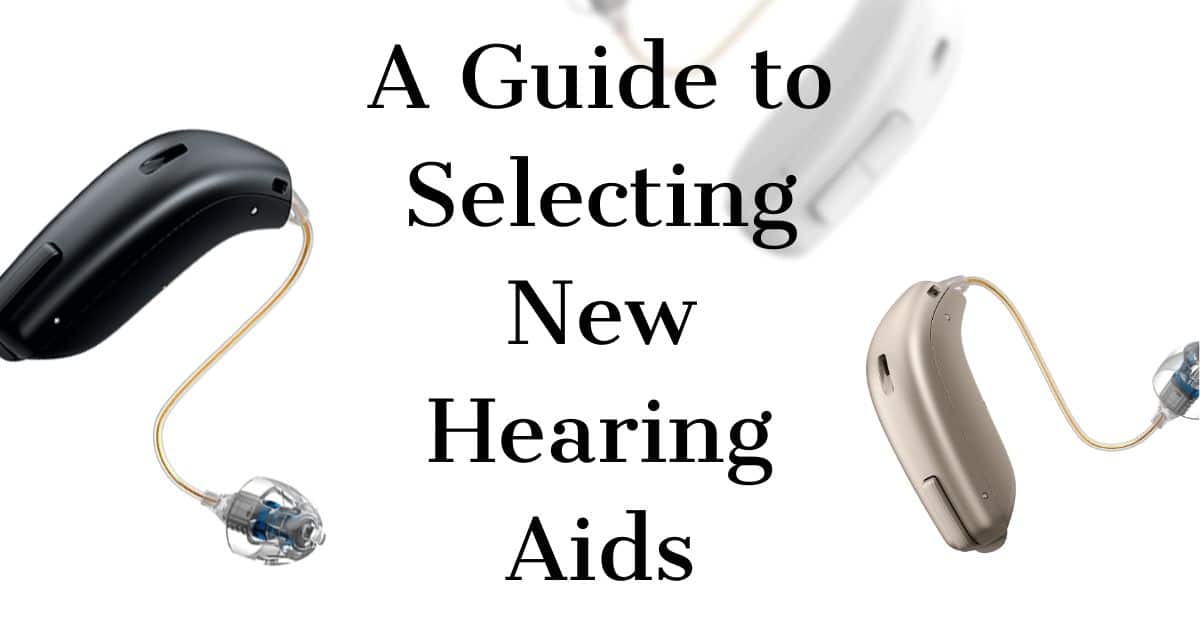
It can be hard to accept that your hearing abilities have changed, and it can be even more difficult still to figure out next steps. It is a lifestyle shift that you have to make, but you do not have to do so alone. There are a wide range of options for hearing aids and hearing assisted devices as well as hearing health care professionals to help you sort through it all.
The Internet is a great resource, too. Try not to be overwhelmed, there is a lot of information out there. This article aims to help you navigate to some landmarks in your journey to better hearing health!
Bring a Friend or Loved One
Ask a friend or family member to join you, if you have not done so already, as you take steps to better your hearing health. Their support can be comforting as you take steps into this new chapter of your life and they can help ask questions during a visit to an audiologist or hearing specialist’s office. Retired audiologist Juliette Sterkens from Wisconsin wisely offers, “Two people hear and remember more.”
A companion can offer support beyond simply visiting the hearing health professional’s office. You can plan to take a hearing test together online and in the comfort of your home if you are feeling anxious. Having a friend or relative with you is also a reminder that hearing loss extends beyond yourself. The positive effects benefit you and also your loved ones.
Take a Hearing Test
If you want to get an idea of where your hearing is before you visit your hearing health care professional, you can find simple hearing tests online. They play a series of tones and different pitches to measure your hearing and can determine if you need to visit a professional. An audiologist can administer an examination and provide thorough details about your results. They will also discuss treatment afterward to best suits your needs. Hearing aids are often a recommendation.
Your hearing health professional will ask you about your lifestyle and hobbies during the exam and use this information to get you the hearing aid that is right for you. Do you live with a large family or live alone in a quieter setting? Do you spend a lot of time outdoors? Do you primarily want to be able to hear the television or radio better? All of these details help to ensure you get a proper hearing aid fitting.
Ask to Try Out Your Hearing Aids
It is possible that several hearing aids fit your needs and a sure-fire way to know which is best for you is to ask your hearing health professional for a demonstration or a “test drive.” It could be possible for them to fit a disposable attachment to the hearing aid and program it to your hearing loss to give you an accurate idea of how it works.
You can also ask to have an automated “real ear” test to see how the aid works in your ear. You should not leave the office without checking that your hearing aid fits. It should fit physically, of course, but it should also fit your lifestyle according to the guidelines you discussed with your hearing health professional.
Take your time to make an informed decision. Hearing aids are a significant investment and can be a costly one. It’s not a decision you want to make hastily. In the market today, a single aid can range from $1,600 up to $3,000 and are often not covered by Medicare or private insurance. A survey from Consumer Reports in 2014 states that there is an average retail markup of about 117 percent, so there can be room for bargaining.
Advances in technology provides us with an abundance of choice, and there are as many add-ons from which to choose, too. Think about your specific hearing loss and the needs you want your hearing aid to meet. Many hearing aids are equipped with Bluetooth technology, allowing you to connect your hearing aid to a smartphone or smart tv. Some filter out noise in a crowded room, or help with phone conversations with a tele-coil. However, if you don’t need those advanced features you could save yourself a lot of money.
Let Your Brain Help You Hear
Many people may not think of the brain’s involvement in the hearing process, but it plays a large part in processing sound and also speech production and recognition. “You don’t hear with your ear, you hear with your brain, and your brain doesn’t know what to do with the sound after you get your hearing aids,” says audiologist Barry Freeman of Zpower, based in Camarillo, CA. Check with your provider about aural rehabilitation and how it can help. There are auditory trainings that can be done in group sessions or at home on a personal computer.
Absolute Hearing Care Centers
If you’re looking for comprehensive hearing health care, look no further than Absolute Hearing Care Centers. We provide a full slate of hearing health services and we look forward to helping you hear at your best. Contact us today to learn more!